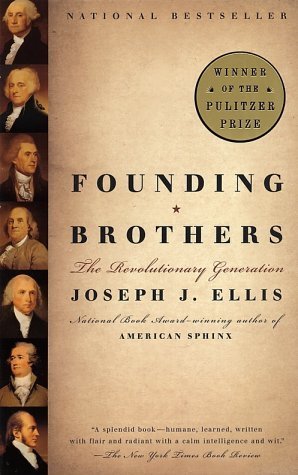
Step into the lives of the American founders and emerge with a perspective you weren’t afforded during the revolutionary war chapter of your history class.
Ellis brings the nuance and nonobvious insights out of a small number of pivotal stories and founders (e.g., the duel between Burr and Hamilton on the cliffs of Weehawken, the dinner among Thomas Jefferson, James Madison, and Alexander Hamilton). For example:
As Adams remembered it, on the other hand, “all the great crticial questions about men and measures from 1774-1778” were desperately contested and highly problematic occasions, usually “decided by the vote of a single state, and that vote was often decided by a single individual.” Nothing was clear, inevitable, or even comprehensible to the soldiers in the field at Saratoga or the statesmen in the cooridors at Philadelphia: “It was patched a piebald policy then, as it is now, ever was, and ever will be, world without end.” The real drama of the American Revolution, which was perfectly in accord with Adams’s memory as well as with the turbulent conditions of his own soul, was its inherent messiness. This meant recovering the exciting but terrifying sense that all the major players had at the time—namely, that they were making it up as they went along, improvising on the edge of catastrophe.
Some criticize Ellis as too academic, but I think his writing is marvelous and I appreciate how well researched he is.
— ᴘ. ᴍ. ʙ.
← back to books | tweet | cast